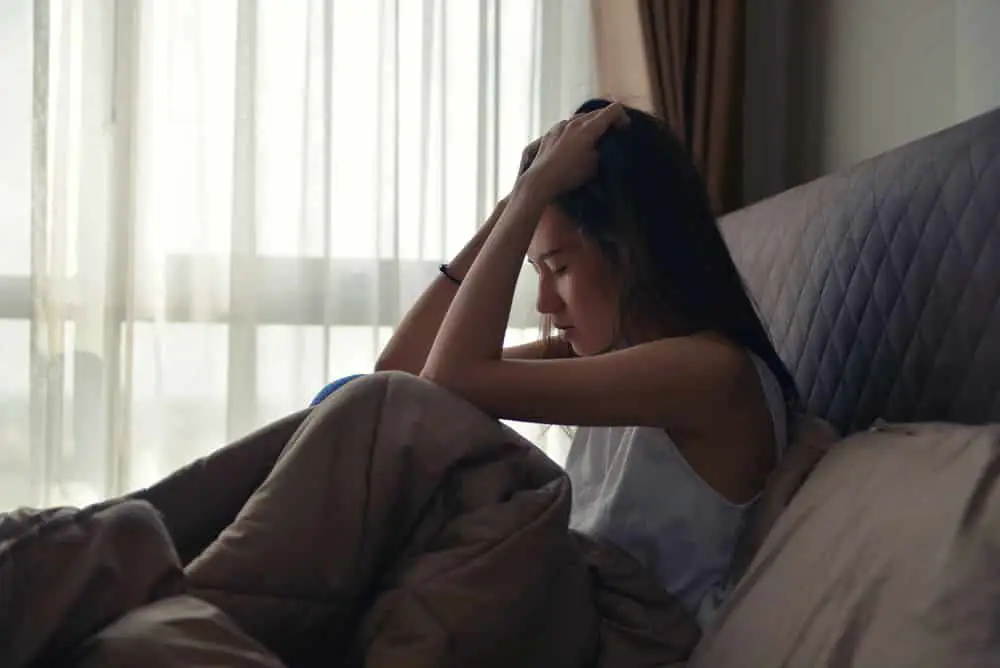When the jingle of your alarm bell yanks you back to consciousness, getting out of your soft, toasty bed is difficult enough, without the curse of an aching body. In this article, we’ll explain some potential causes of body aches after sleeping, and how you can prevent them from happening.
Poor Quality Mattress
The average person spends a whopping 40% of their life sleeping, or trying to fall asleep1. With such a huge chunk of our time spent between the sheets, and with sleep such a critical determiner of health, a good-quality mattress might be one of the best purchases you’ll ever make.
A good quality mattress must do two things: support your body weight firmly, and feel comfortable to you. The softness of a mattress depends on your personal judgment of what is comfortable, but ideally, your head, shoulders, buttocks and heels should be aligned. If your mattress is so soft that it sinks at your hips, this could be a cause for your body aches.
Your Pillow
The purpose of a pillow is to support your head, so that your spine retains a natural curve during sleep. To keep the spine in a natural position while sleeping on your side, your pillow needs to be about as thick as the distance between your ear and the outside of your shoulder, to account for the height that your shoulder creates. If you tend to sleep on your stomach or back, you should consider retraining yourself to sleep on your side, as these could be causing your body aches after sleeping (more on this below).
As with mattresses, the softness of a pillow comes down to personal preference, and what makes you feel most comfortable (while retaining the correct height).
Sleeping Position
Sleeping on your back is considered to be one of the best ways to sleep2, as it positions your head, neck, and spine in neutral positions. Unfortunately, it can also cause lower back pain, so if you’re experiencing this type of pain when waking, you might consider retraining yourself to sleep on your side. Sleeping on your stomach can also cause back and neck pain, so you should avoid this too3.
If you’ve tried to catch up on sleep with a marathon 12 hour session, you may realise that you can get body aches after sleeping too long, which might be a result of a troublesome sleeping position.
Underlying Medical Condition
Sleep-related body aches can be caused by inflammation, which in turn, might be caused by an underlying medical condition. If you’re concerned about the amount of pain you’re feeling when getting out of bed every morning, visit your doctor to rule out any inflammation-causing conditions such as Lyme disease, thyroid disease, arthritis, or chronic fatigue syndrome. The problem might even be something as simple as a lack of vitamin D.
Inflammation
As mentioned above, inflammation can cause your body to ache, and unfortunately, it has a huge list of potential causes, including chronic conditions, medications, sugar, refined carbohydrates, alcohol, processed meat, and trans fats4. A healthier Mediterranean-style diet can help to reduce inflammation in the body.
If you think you might be suffering from inflammation, talk to a doctor about your concerns.
Exercise
Morning body aches can be caused by a lack of good quality sleep, which deprives your body’s tissues and cells of repair time. An effective way to improve sleep is with exercise, which tires the body and reduces stress, helping to improve both the quality of your sleep, and the amount of sleep that you get each night.
If there’s one habit that you should cultivate, it’s regular exercise.
Lack Of Sleep
Can lack of sleep cause body aches? Absolutely. Bitter as it is, body aches can lead to bad quality sleep, and bad quality sleep can lead to further body aches, trapping you in a cycle of pain. If you suffer from insomnia, talk to your doctor about your concerns.
Being Overweight
Being overweight strains your joints, muscles, tendons, and ligaments, which can lead to body aches after sleeping. If you’re a little on the heavier side, consider switching to a healthier diet and starting an exercise program. You may find that you sleep better, and have fewer body aches after waking.
Given the complexity of our bodies, it can be difficult to determine the cause of certain health issues, such as body aches after sleeping. But by going over each item in this list, and ruling out as much as possible, you should have a better understanding of what is causing your body to ache in the morning, so that you can get a better night’s sleep.
References
Leigh Campbell, 2017, We’ve Broken Down Your Entire Life Into Years Spent Doing Tasks, Huffington Post
Which Sleep Position is the Best?, sleep.org
Sleeping on Your Stomach: Is It Bad for You?, Healthline
Understanding Inflammation: Causes, Symptoms, Diagnosis, Treatment, More, Healthline
5 Surprising Ways To Prevent Flu This Winter Season!
Do you spend most of your winter days dreading the inevitable illnesses that cold weather brings? Is your healthy lifestyle being compromised by cold mornings and gloomy evenings? Or are you just sick and tired of being sick and tired? We all know that the cold seasons bring a big decrease in our willingness to…
5 Reasons To Get Regular Health Checks
How often do you see your doctor for regular health checks? Are you guilty of only booking an appointment with your doctor when you’re sick? Perhaps you haven’t been sick in years and pride yourself on your healthy lifestyle. You’ll see the doctor if and when you need to, right? Even if you have no known health…
How To Help A Loved One Who Is Coping With Anxiety And Depression
Do you know someone who is coping with anxiety and depression? Are you watching a loved one, close friend or even a work colleague struggling to cope and you’re unsure how you can help them? Has a family member recently changed and you’re worried they may be depressed or anxious? There are lots of simple…




